“There is nothing like the feeling of writing a song that you believe in. It takes you out of yourself. It lifts you up. You finally understand. You can comprehend your place in the universe.”1
Wellington is a city people move through, to Melbourne or Berlin or (—ugh—) Auckland. There’s the weather, for one thing. There’s the gentrification, for another. Oftentimes I think of myself as a barnacle clinging to the rock of Wellington, closing my shell doors against the battering waves & holding on for dear life. It’s deep Winter now & the houses look sad. Tucked into the hillsides where never a finger of sun touches for months, they have a look of wet neglect: slime, moss, lichen, algae, rust & flaking paint. Wellington in Winter can be a drear slog. Lake talks about this while introducing a song. Living in Norway Street, that house was cold, he says. Working at the Dump. He talks about Moxham Ave, too— there is a song about it on the album. (I’m thinking maybe that was where I first met Lake; it seems likely?)2
Moxham Ave was a big eight-bedroom house, “Over in Whataitai, or Hataitai,” says Lake, naming the taniwha who became the mountain. I lived on the city side of the mountain, in Roxburgh Street, & I would walk over the taniwha’s spine to visit Moxham, then back again at night, picking my way down the goat-tracks criss-crossed with knotty pine roots. The other option was to go through the tunnel breathing exhaust fumes, which was quicker but nastier. Through the pine forest was steeper but more beautiful, the city lights laid out like a glittering carpet below, stripes of yellow & white light spilling down the black mirror of the harbour.
Yes, we used to live in these huge houses in the old days, kids, grand mansions fallen into disrepair, fallen down to us young paupers like a shabby opshop tailcoat, full of holes but still retaining a shadow of their former grandeur. The big houses, through which dozens or even hundreds of inhabitants passed, have fallen one by one over the years. Moxham Ave. The Moorings. Paterson Street. These flats were nodes, incubators, hothouses of creativity, because of sheer maths: the people who lived there & their people & their people’s people formed huge networks of connection, & from those wild cross-pollinations flowered relationships, collaborations, bands.3
Despite attrition, a number of old-time friends remain in the city, though I see them less often these days. Sometimes at gigs or festivals they appear out of the woodwork, & it’s like, have you all been here all along? Hiding in the suburbs, living the quiet life? I have special fondness for these fellow-survivors, the ones who stay (or come back), who keep faith. I often feel like Wellington & I are married. It’s that long-term-relationship feeling of tolerating someone’s eccentricities, accepting the changing forms they take on. Unconditional love, I suppose.
Lake is one of these olden-days people, long-known; & besides, he’s a fellow Wizard. (He also likes folk music, sea shanties in particular.) Most importantly, his work— as well as being strongly politically driven— is hyperlocal, highly concerned with place. His songs honour the mundane, & they’re written in the vernacular, spoken in the true speech of us. In all these particulars I feel like we are paddling in some of the same pools. But the main thing I love about Lake’s music is how its honest expression of emotion punches me in the heart. For instance, check out this song from Lake’s album Wellington : Te Upoko o te Ika, named for my place, the South Coast:
(Gets me every time…)
I get to Meow, & after Lake (who scans me in at the door) Achille is the first person I see. We stand at the bar talking about chainmail. I show him photos of the steel chain I made for Kelly:
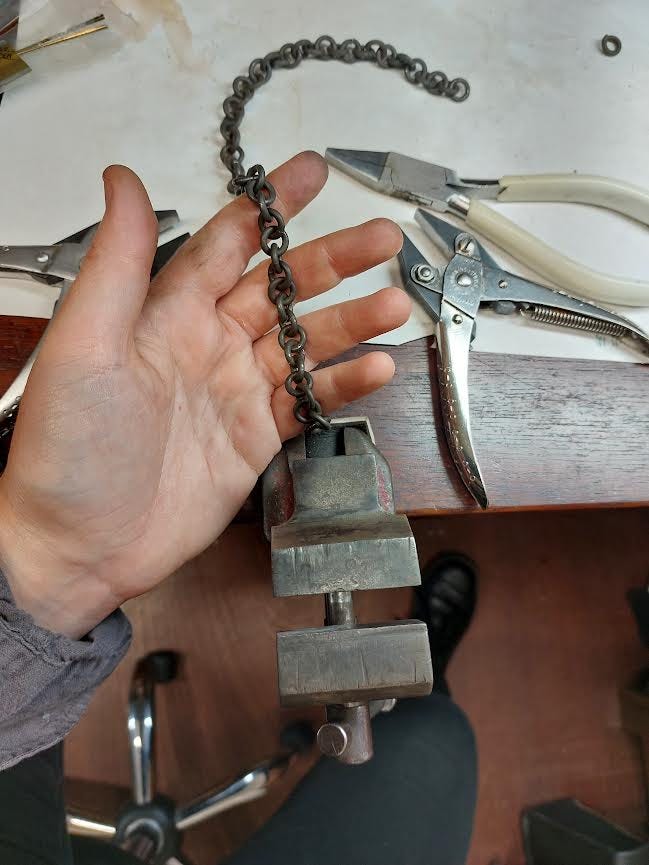
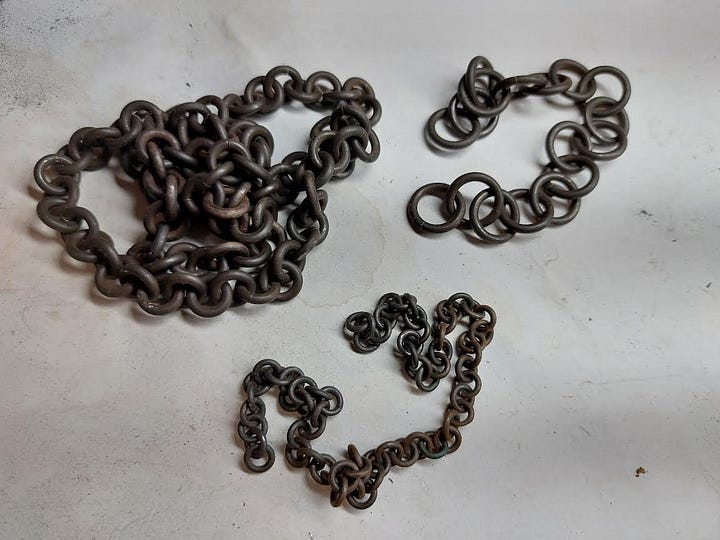

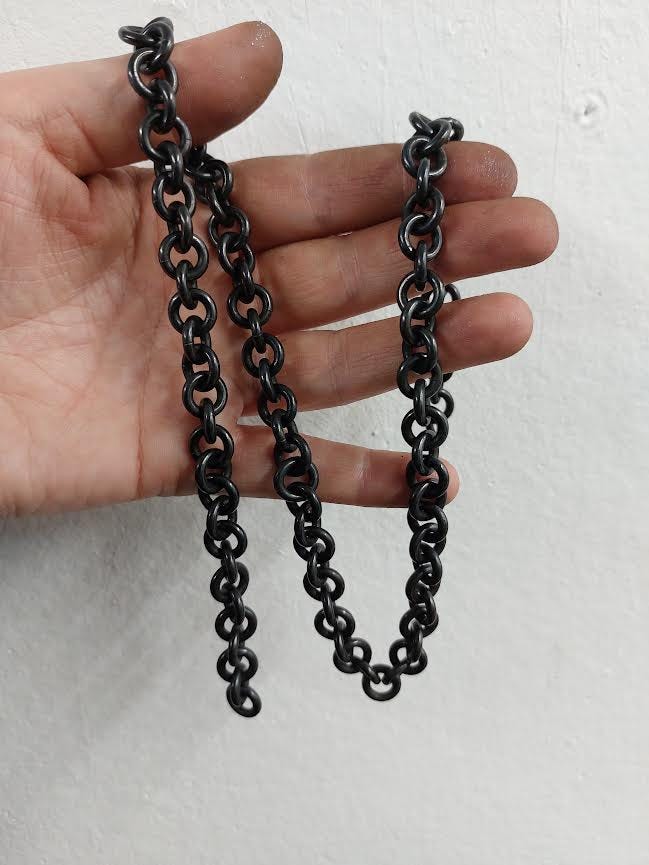
Me: “You’re into that, right?”
Achille talks about how when you’re making a really complicated chainmail, the loop you’re joining has to go through, say, eight or nine other loops in a specific way. I say I like chainmaking because of the mindlessness, the access to flow, & he agrees, that’s why he likes it too. We talk about how it would be to have a forge, & that reminds me how Kelly’s youngest son wants a forge so he can pursue his passion for making guns, swords, & knives. Achille says that he’s more into armour than weapons.
Me: “Defence, not attack.”
Achille: “Yeah, swords & stuff, those things are sharp… You might cut yourself!”
The opening acts are both excellent, Hara & Menzies. Hara sings stunningly in Bahasa & Javanese, & Menzies sings songs about primary school. He sings a song about playing in the flooded gutter & then going to the staffroom for the worst kind of Milo, just hot water & Milo, saying beforehand “If anyone can think of a song title let me know,” so I think of one & tell him in the crowd afterwards. My idea is that he should name it, like, Standard Three, or whatever the Millennial equivalent is: Year Three or some such.
He also sings about how he would like the All Blacks to plough him into the ground, sweet grass between my teeth, mud on my cheek. “Richie McCaw, plough me into the ground… Mils Muliaina, plough me into the ground…”
This causes the cap-wearing dude next to me to get talking about how Christian Cullen came to his school to advise them all how to succeed in life, but Cullen was incredibly stupid.
Me: “Yeah, it’s all those knocks on the head.”
Cap Guy: “Nah, probably he was stupid at school, & he’s still the same person, you know, but now he’s an All Black he’s suddenly qualified to give life advice?”
Me: “Did it work though? Did you succeed in life?”
Cap Guy: “LOL, no!”
I got into the conversation because Cap Guy & Vorn were talking about the recorder. Cap Guy was saying that he kept at the recorder, just kept at it, then the University had to make a special degree for him, Performance Recorder. Then I hear Vorn saying “Telemann concerto,” & that’s enough for me to jump in & start talking about my Dad being a recorder-maker, which they are mutually impressed by to a frankly unusual degree. Vorn says he teaches recorder & ukulele, & for a while there the ukulele was all the rage— ukulele orchestras & so forth— but now he reckons recorders are making a comeback. I say I’ll tell my Dad, he’ll be pleased.
We drift barward, so Vorn can get another Negroni-on-special, I guess— I’ve been watching how the light hits these drinks in people’s hands, lighting them up like garnets— & he goes “Yeah, the advantage of the ukulele is people who learn ukulele can go on to play guitar.”
Me: “Yes, it’s a gateway instrument. But the other advantage of ukulele over recorder is that you can sing at the same time as play.”
Vorn: “Well, you can sing while playing the recorder!”4
Sure, theoretically? That makes me get a sudden memory of my Dad’s friend whose party trick was playing three recorders at once: one in each hand & one in his nose as a drone. (But I might be misremembering the nose bit?)
So I’m standing at the back of the crowd because I’m wearing my tall hat & I don’t want to be that guy who stands in front of everyone getting in the way of their view, & I’m also wearing my new Wizard coat that I resewed all the buttons onto with little crosses, it’s moth-eaten but aren’t we all, & Lake comes on stage, yellow glasses, blue jacket? white shirt? orange trousers? white guitar? I think that’s right. I can remember the confection of colour, anyway, & I love this style, clean blocks of bright, like a flag, like an icecream wrapper. (Lake often wears white. Like the Druids.)5
As soon as Lake & the band come on people rush forward & flood the space in front of the stage, where did all these people come from? As he starts to sing I realise I have not seen him perform before, not in this guise, though I’ve seen his band with Vorn, the Wellington Sea Shanty Society, a number of times. He inhabits his body in an energised way. The people want to be close to him. He’s like a preacher, Lake, like he’s standing on the soapbox. I don’t mean that sarcastically, there’s something magnetic about his performance, charismatic— & what it is, I think, is the full commitment. Being a channel, like in folk singing when the song takes you over. Yet it is not shinily perfect polish but raw vulnerable expression. (I should say he has a great band, too, of whom I only slightly know the percussionist, Ato.)6
But here I run into a problem of description: you had to be there. Live music spins a web in time, a current made of patterns, suddenly it’s sweeping you along, & everybody rides it together, & of course you feel in that moment, you feel togetherness & relief, because it’s So Real, unmediated, you drop everything else, all the worry & tension of life you’ve been carrying around like pocketfuls of stones. I often cry in that start-of-the-music moment because it is such a relief just to be in a room with other human bodies doing something so good together. And you feel a great love for the people paddling, the people driving this whole music-waka— that is, the spotlit musicians up front who are risking & gifting themselves to you, the crowd, in order to effect the transient symbiosis of performance. We need them & they need us. We’re all carrying each other forward through time.
(Lake: “This song is about Moxham Ave, the flat— Laundry, the bar— & erosion… the geological process.”)
I’m thinking how music & words twisted together in song are so much powerful than written words— that if you give a simple line a tune it moves into another realm altogether— & that this is an ancient magic indeed, one I’m in awe of, for that very reason of emotionality. I’m thinking about how Lake, like me, can come across as a fairly reserved individual:7 there’s a formality to him, which makes it all the more interesting that he (like me) is ongoingly compelled to reveal his interior world. I guess there are things that can be said in art that can’t be said any other way. Ideas have to be carved into a certain form. I conceptualise this writing I’m doing here as a letter I’m writing you, but maybe it’s more like a poster, stuck up on the street for anyone to look at. (They mostly don’t, but they could!) Publicly visible art is talking to everyone, & that’s fucking terrifying at times, because of the contract with the Muse that states that you agree to tell the truth.8 Truth is power but it is also vulnerability. Vulnerability is power.
As I watch Lake I’m also thinking about something I wrote a few years back:9
Maybe those who continue along the road of art are simply those in whom the drive to self-actualise is stronger than the need for self-preservation. Because it takes more than talent or mere perseverance to continue to evolve creatively in the face of precarity & / or indifference. It takes true dogged stamina, or at least it takes an art-drive that cannot be smothered, that fights against being quietly laid down. “Three years in my garage,” says Lake— that’s how long this album took. He has a kid now. (The last time I saw Lake prior to this show was at Newtown Festival. I was sheltering in a bar with my brother & sister when I saw, through the window, a beautiful child looking in at me from the pavement. I waved, then looked up & saw the parent, & it was Lake. Who knew!)
I’m thinking too about the bare economics of long-game art, in the sense of energy in / energy out. Art is very time-hungry, & money-hungry too in some disciplines (music for instance, with all its gear). Art is something like a sourdough bug, in the sense that it’s a half-mysterious living thing that needs constant input & tending if you want your bread to rise. To make art & to gift it to the world as a longterm practice takes substantial energy10 (& bravery, opening doors into the soft core of yourself) so who can blame people who give up, because it fucking sucks sometimes & you do shit work & people misunderstand you & you ask yourself why the hell you’re doing it & what it all means. But then there is the buzz & the flow & the sense-making. And there’s the vocation of it, intertwined with the politics— giving bits of yourself, flipping coins into the world. (Do you understand? Do you feel that way, too?)
And yeah, we repeat ourselves, we have our themes, & that’s part of what’s embarrassing about art, it lays us bare, it shows what we really care about, it shows what change we hope to effect. Lake plays a spoken word sample from Barry Pateman:11 “Look at the people in this room. I don’t care if you don’t like each other, these are your comrades. You ain’t got many others, so make the most of where we are…” He also makes a Socialist speech between songs, touching his hand to the top of his head as he pulls the words out. He says that meritocracy is bullshit, we all work hard, & those who succeed are lucky, they shouldn’t think it’s because they deserve it. We don’t have a right to anything except shelter, safety, & unconditional love. He says that we have to be communal to be strong. Join your Union, we need each other.12
It’s true that we cannot practice alone. I think that’s what I’ve been pining for, the feeling of being in something bigger than myself. My problem is I’ve gotten too solitary lately, off in my own rockpool. An artist is an ecosystem, not closed but porous at the edges. I’ve been thinking lately about those words comrade, camaraderie.13 Trying to understand what it is that makes Lake’s music feel how it feels to me, & thinking back on those big flats, thinking of my 20s, I realise that there was a camaraderie there that’s missing now. Maybe we took it for granted. There were so many of us then, all in the same boat. There are fewer of us now, but maybe that’s what makes solidarity all the more precious— maybe that’s what concentrates the work of other Wizards into a strengthening magical infusion, power-fuel.14 We help each other keep going by keeping on going. Your flame blows out from time to time, someone else gives you a light off theirs. Love & anger. It is important to say how things are.
When they turn the lights on everyone empties out straight away. (Meow is like that, like a waiter whisking your plate away the minute you put your fork down.) I guess that I’ve probably missed the last bus, but when I ask Achille to look it up for me on his phone I see that it’s still ten minutes away. (Yes!) I go up to say thanks to Lake, say I have to run but I’m so glad I came, & quickly hug him, only noticing as I do that he has a full pint in one hand & a bouquet of flowers in the other, so he’s pinned in space, unable to move either arm. Oops. On the way home I can’t stop thinking about that hug— how I didn’t ask first, which is the rule these days, a good rule I normally follow. All I can think is that it was old habit.
If you want to listen to Lake’s new album, We lived our lives on top of this, it’s here: https://lakesouth.bandcamp.com/album/we-lived-our-lives-on-top-of-this
And if you want to see Lake South on tour & you are in or near Auckland (July 10th), Tauranga (11th), Hamilton (12th), Christchurch (25th), or Dunedin (26th), you can get tickets here: https://lake-south.com/shows/
This is my ninety-ninth post on Substack. Write me back if you feel inclined— hit reply on the email or write a comment— drop me a few lines & tell me what’s giving you life right now. Alternately, write a note to someone whose work you appreciate. Tell the artists you love that you love them!
Lake South, from this interview
Lake says in the album notes: “Moxham Ave was a big flat in Hataitai, Wellington. I wrote and recorded 'Good Keen Man' there. Lake South started there.
Sometimes my flatmate would knock on my door and offer me a smoothie.”
Not to mention the parties… Shoutout to Garrett St, which has managed to survive against all odds
Vorn: “another Quality Vorn Reckon brought to you by three negronis”
It also makes me remember Hilary, who I knew even before I moved here, who wore white at all times & shaved her head & eyebrows, like a tall austere angel, & this is like Lake too, who I never knew without a clean-shaved head.
‘The current line-up features Theo Sekeris (Ras Judah, Rubita) on bass, Eddie Crawshaw (Sheep Dog & Wolf, Bonaparte) on drums, and Penelope Esplin (French for Rabbits, Eigenface) on harmonies and synths.’
Resting Wizard-face
The truth but not the whole truth, as I said to Alfred last night about life-writing
In this piece here— the first proper thing I wrote on Substack, or at least a piece in which what I was up to started to become clear…
Of Hopeful Green Stuff Woven
Heather Christle, The Crying Book: “Writing a poem is not so very different from digging a hole. It is work. You try to learn what you can from other holes and the people who dug before you. The difficulty comes from people who do not dig or spend time in holes thinking that the holes ought not to be so wet, or dark, or full of worms. ‘
Even if you get paid sometimes, public-facing art is still simultaneously a gift you’re giving: money doesn’t cancel out the gift
You can hear it here, at the start and end of this song: Auckland (so close to nothing at all)
As Lake says in the aforementioned interview: “People work so bloody hard at things. And they sacrifice so much for their work. Then when they succeed they think they deserve it. They worked harder than all those other people working their asses off and that’s why they deserve their multiple houses and nice cars. But 99% of people never ‘succeed’ at art in the way that they, or society, view success.
In competitive contexts many have merit but few ‘succeed’. What separates us in life is luck (or privilege)…
Life is not a competition, helping others is not a weakness. Neoliberalism’s friend meritocracy is false and believing in it encourages selfishness, discrimination and indifference to the plight of the unlucky.
We don’t deserve success for our hard work. What we deserve is to be safe. To have food and water. To have shelter. And we all deserve unconditional love as human beings.”
Or, in Russian, for that classic Communist vibe: товарищ / tovarisch. (Tip of the Wizard hat to Mick)
Lake says: “We write a lot of our myths when we are young and stupid and then we keep believing them despite having grown up and learnt so much. I think we associate being young with being creative and energetic and productive but often it’s that we just had more time and less responsibilities.
What my friend said was that we lose some things as we age, but we have all these new tools we can use to be creative or get stuff done or whatever.”


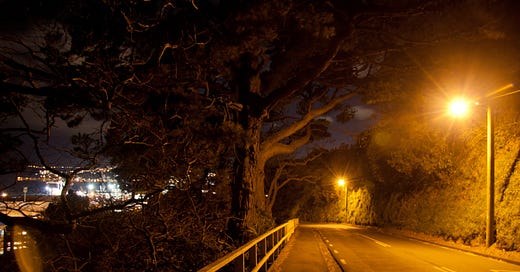



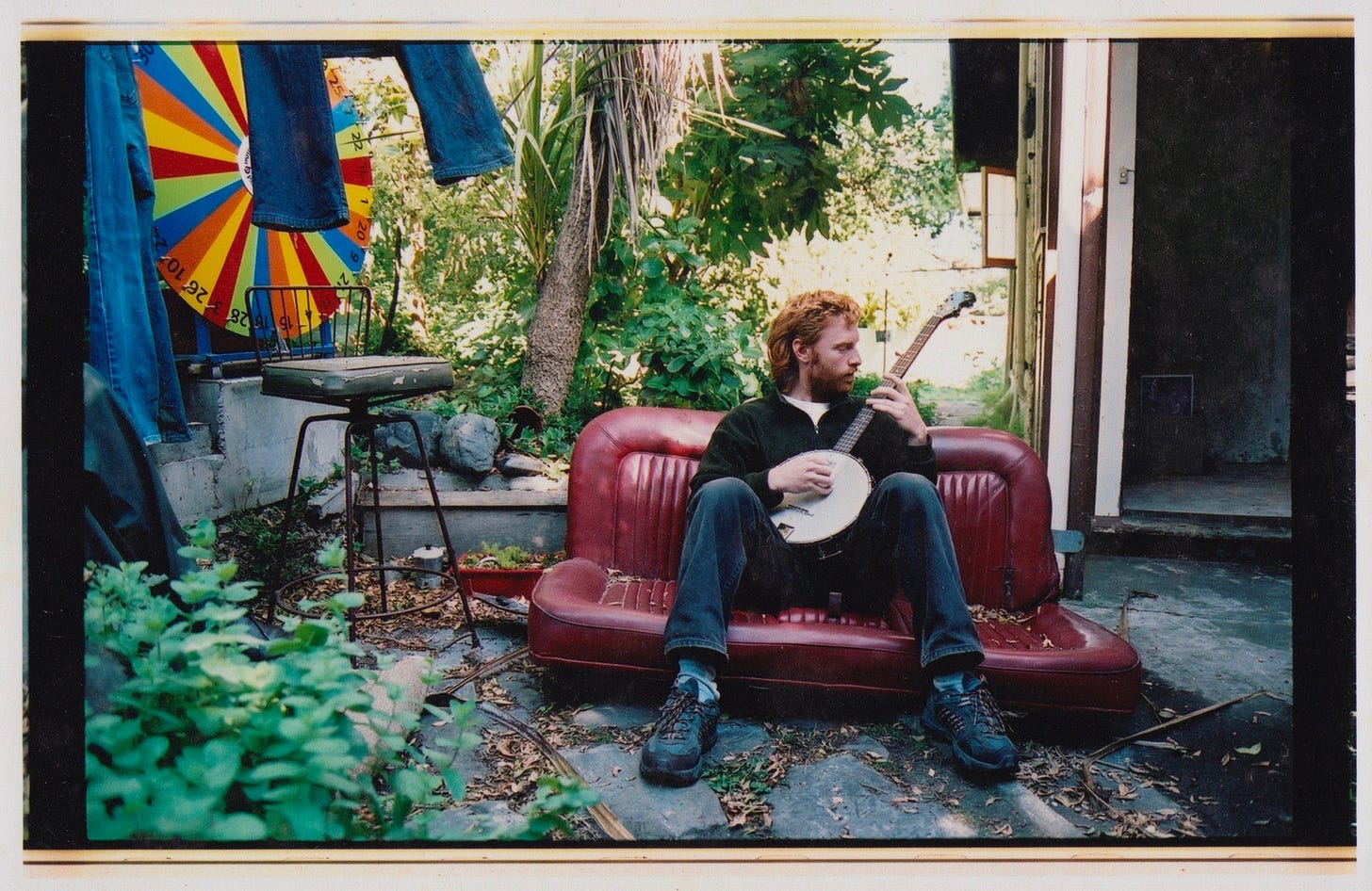


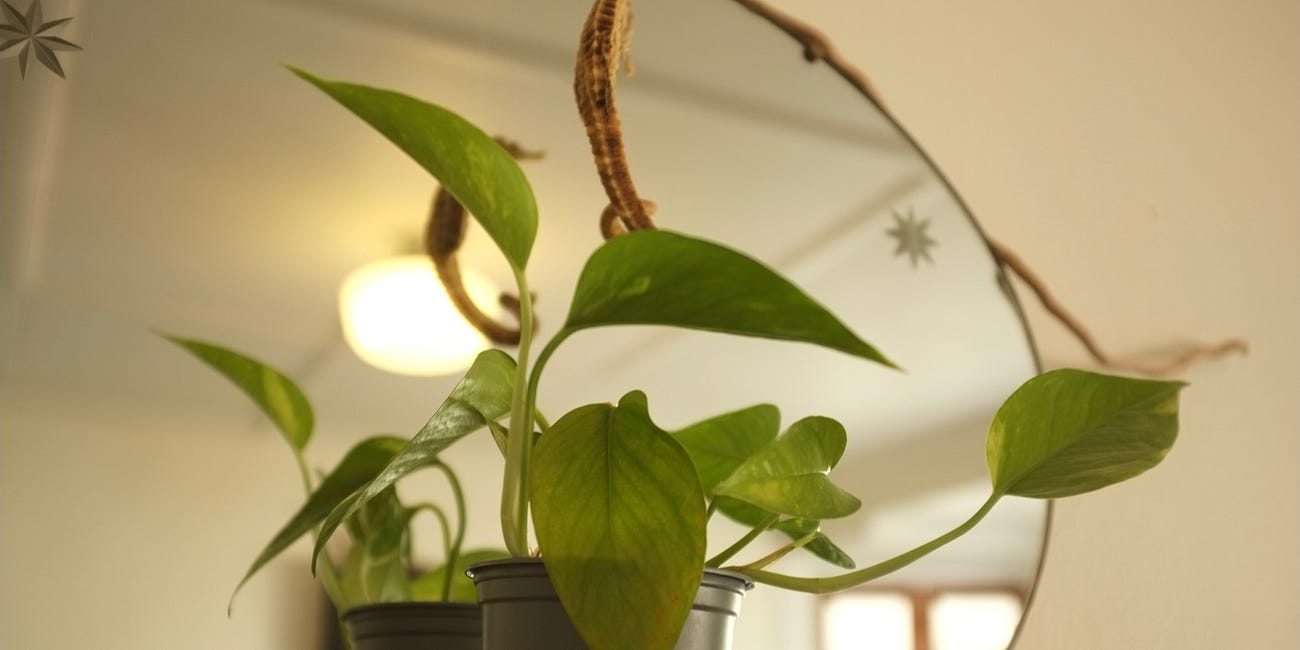
I hit publish on this piece, then a few minutes later as I was shutting tabs I came across this little documentary on Lake, which I hadn't seen before. Uncanny how close the things he says are to the things I wrote!
https://www.youtube.com/watch?v=WA1Sr-SZTTA
Loved Wellington! Great piece!